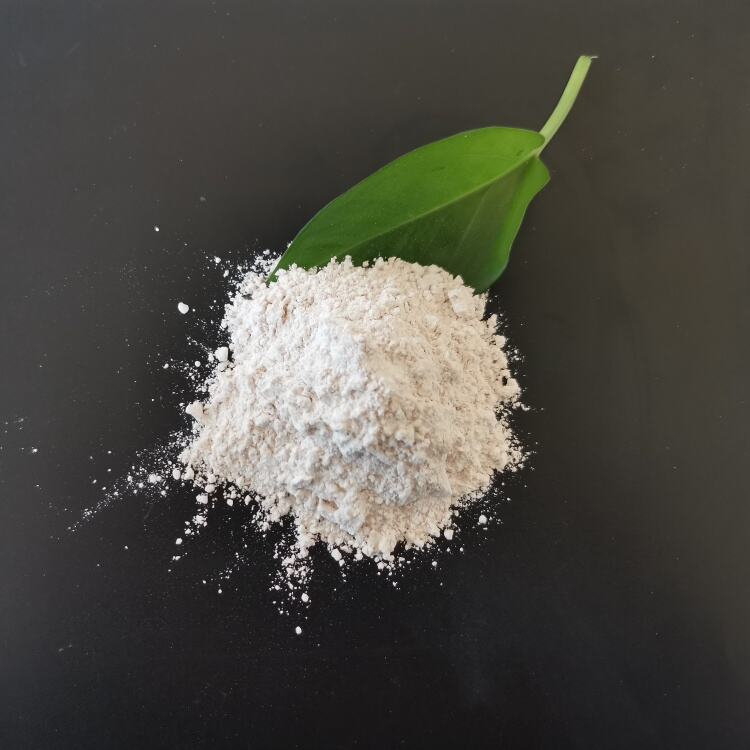Bij BANGZE realiseren we ons het belang van het kiezen van de juiste meststof voor uw gewassen. Stikstofmeststoffen zijn een van de belangrijke soorten meststoffen die helpen bij het verhogen van de opbrengst en de groei van planten. Ammoniumsulfaat is een dergelijke stikstofhoudende meststof. In dit onderzoek bespreken we alles wat u moet weten over ammoniumsulfaatmeststof voor de bodem en landbouw in het algemeen, inclusief de impact op de nationale economie en landbouwproductie, voordelen, milieu-impact, kosten-effectiviteitsanalyse, het selecteren van een goede ammoniumsulfate en hoe u deze het beste op uw gewassen kunt toepassen.
Voordelen en nadelen van het gebruik van anhydriek ammonia als meststof: Voor- en nadelen
Ammoniumsulfaat is een uitstekende stikstofbemesting die direct beschikbare, snelwerkende stikstof aan planten kan leveren. Deze meststof is ook wateroplosbaar, wat betekent dat hij snel door de wortels kan worden opgenomen. Bovendien draagt ammoniumsulfaat bij aan het bevorderen van de zuurgraad van de grond en is hij ideaal voor planten die zuur milieu verkiezen, zoals aardappelen, bosbessen en rododendrons.
Hoog stikstofgehalte Een van de belangrijkste voordelen van ammoniumsulfate meststoffen is zijn hoog stikstofgehalte. Stikstof: Planten hebben stikstof nodig om eiwitten, enzymen en chlorofyl te kunnen vormen, die noodzakelijk zijn voor fotosynthese en een goede oogst. Door planten de benodigde stikstof te geven, kunnen landbouwers een hogere opbrengst en kwaliteit van hun gewassen realiseren, waardoor de winst toeneemt.
Theatus, A.M., 1.179–1.219. Toepassingspraktijken en bodemanalyse kunnen helpen deze risico's te beperken. Landbouwers moeten hun land regelmatig onderwerpen aan bodemproeven om de juiste hoeveelheid kunstmest voor hun gewassen te kunnen vaststellen; deze hoeveelheid moet voldoende zijn om maximale groei te bereiken zonder het milieu te beschadigen.
Negatieve effecten van stikstof tussenpersonen op akkerland
Stikstofhoudende meststoffen zijn belangrijk. Ze zorgen voor een hogere landbouwproductiviteit, maar kunnen tegelijkertijd vervuiling veroorzaken wanneer ze onregelmatig worden toegepast. De toediening van stikstof in mest kan leiden tot afspoeling van stikstof en uitloging in waterlichamen, wat eutrofiëring veroorzaakt. Dit ontnemen van zuurstof uit waterlichamen doodt daardoor aquatische leven en verstoort het evenwicht van ecosystemen.
Daarnaast zijn stikstofhoudende meststoffen een belangrijke bron van broeikasgasemissies; ze geven lachgas (N2O) vrij, een krachtig broeikasgas dat klimaatverandering veroorzaakt. Om deze milieuproblemen te verlichten, kunnen boeren duurzame landbouwpraktijken toepassen, zoals precisielandbouw met gebruik van stikstofsensoren en meststoffen met gecontroleerde afgifte, voor een efficiënte voedingsstoffentoedeling en het minimaliseren van de negatieve impact op het milieu.
Boeren kunnen de negatieve effecten van stikstofmest op landbouwecosystemen verminderen en duurzame landbouwontwikkeling bevorderen door enkele milieuvriendelijke maatregelen te nemen en stikstofmest optimaal te gebruiken.
Economische Analyse van de Efficiëntie van Verschillende Stikstofmeststoffen op de Inkomstenpotentieel van Boerderijen
Kosteneffectiviteit is een belangrijk aspect bij de toepassing van stikstofbemesting in de landbouw. Stikstofbronnen verschillen in kosten en voedingsconcentratie, wat hun netto-impact op de winstgevendheid van een bedrijf kan beïnvloeden. Sommige meststoffen zijn aanvankelijk iets duurder, maar kunnen wel een betere voedingsefficiëntie en langere werking hebben, wat op lange termijn kan leiden tot hogere opbrengsten.
Zwavelzuurammonium als meststof, zoals die door ons wordt geproduceerd, wordt door veel boeren verkozen vanwege het hoge stikstofgehalte en de snelle opname, wat leidt tot verbeterde gewasprestaties. Toch moet voor de specifieke behoeften van een gewas en teeltsysteem de kosteneffectiviteit van geselecteerde stikstofmeststoffen worden vergeleken op basis van hun voedingswerking, werksnelheden en efficiëntie, zodat de meest geschikte optie kan worden vastgesteld.
Een volledigere boekhouding, gebaseerd op een kosten-batenanalyse waarbij het opbrengstpotentieel, de bodemvruchtbaarheid en de milieugevolgen worden meegewogen, helpt boeren om te beoordelen of bepaalde toepassingen van stikstofbemesting verstandig zijn voor hun bedrijf. Boeren die investeren in betere meststoffen met langetermijnvoordelen kunnen hogere winsten behalen en zich richten op duurzame landbouw.
Hoe kiest u de stikstofbemesting die het beste past bij uw specifieke teeltsysteem?
Het kiezen van de juiste stikstofbemesting voor uw gewassen is essentieel voor een goede groei en opbrengst. Gewassen hebben verschillende voedingsstoffen nodig en optimale bemesting kan de algehele prestatie van het gewas aanzienlijk verbeteren. Boeren moeten rekening houden met het type gewas dat zij met stikstof bemesten, de bodemkwaliteit, weersomstandigheden zoals droogte en te veel regen, en het huidige groeiseizoen bij het bepalen van het beste tijdstip voor stikstoftoediening.
Ammoniumsulfaat kunstmest is geschikt voor gewassen die een zure bodemreactie prefereren en een hoog beschikbaar stikstofgehalte nodig hebben voor hun voeding. Wanneer de voedingsbehoeften van gewassen bekend zijn en bodemanalyses aangeven welke voedingsstoffen ontoereikend zijn, kunnen boeren goed onderbouwde beslissingen nemen over het soort en de hoeveelheid stikstofmest die zij moeten toepassen op hun gewas.
Het tijdstip en het beheer van meststoffen dienen eveneens in aanmerking te worden genomen om de maximale opname van voedingsstoffen te verkrijgen met minimale verliezen. Het verdelen van mesttoepassingen over het seizoen, het verbouwen van stikstofbindende dekgewassen en het gebruik van langzaamwerkende meststoffen zijn succesvolle strategieën om de beschikbaarheid van voedingsstoffen te maximaliseren en de plantengroei te stimuleren.
Door de juiste stikstofmest voor gewassen te kiezen en deze correct toe te passen en te beheren op het landbouwbedrijf, kunnen telers de productiviteit van gewassen en de bodemkwaliteit verbeteren, terwijl zij tegelijkertijd duurzame landbouwpraktijken bevorderen.
Het optimaliseren van het gebruik van stikstofmeststoffen met geschikte toepassingsmethoden en tijdstippen
Om de werkzaamheid van stikstofmeststoffen te optimaliseren, moeten rekening worden gehouden met de toepassingsmethode en de tijdsberekening. Het correct, op het juiste moment en met de juiste methode aanbrengen van N-meststof is belangrijk om de opname van voedingsstoffen door planten te bevorderen en om voedingsstofverliezen door uitloging of afvoer te verminderen.
Bij stikstofbemesting moet rekening worden gehouden met de bodemvochtigheid, de groeifase van de gewassen, de weersomstandigheden en de behoefte aan voedingsstoffen, die de optimale toepassingstijden en -percentages bepalen. Het verdelen van de ammonium sulfate industrial grade de toepassing in verschillende doses, en meer specifiek tijdens een specifiek ontwikkelingsstadium, maakt het mogelijk de beschikbaarheid van voedingsstoffen te coördineren met de behoeften van de plant om goed te groeien en een hoge opbrengst te produceren.
Op dezelfde manier kan het gebruik van stikstofbeheerpraktijken, zoals bodemanalyse en het toepassen van gewasrotatie en stikstofbindende dekgewassen, helpen bij het verbeteren van de voedingskringloop en verminderen van de afhankelijkheid van synthetische meststoffen. Het gebruik van geïntegreerde voedingsstoffenbeheerstrategieën (INM) kan de gebruiksefficiëntie van stikstofmeststoffen verhogen, de bodemvruchtbaarheid verbeteren en de milieubelasting verminderen.
De toepassing van stikstofhoudende meststoffen zoals ammoniumsulfaat kan invloed hebben op de gewasopbrengst en de plantengroei op boerderijen. Door de voordelen, milieuoverwegingen en kosteneffectiviteit van verschillende soorten stikstofmeststoffen te kennen, evenals de selectiecriteria en aanbrengmethoden van deze meststoffen, kunnen boeren goed onderbouwde beslissingen nemen over duurzaam gebruik met als doel de gewasopbrengst te verhogen. Bij BANGZE zijn wij toegewijd aan het leveren van uitstekende meststoffen die de boer kunnen ondersteunen op weg naar hoge opbrengsten en duurzame landbouw.
Inhoudsopgave
- Voordelen en nadelen van het gebruik van anhydriek ammonia als meststof: Voor- en nadelen
- Negatieve effecten van stikstof tussenpersonen op akkerland
- Economische Analyse van de Efficiëntie van Verschillende Stikstofmeststoffen op de Inkomstenpotentieel van Boerderijen
- Hoe kiest u de stikstofbemesting die het beste past bij uw specifieke teeltsysteem?
- Het optimaliseren van het gebruik van stikstofmeststoffen met geschikte toepassingsmethoden en tijdstippen

 EN
EN
 AR
AR
 NL
NL
 HI
HI
 JA
JA
 KO
KO
 RU
RU
 TL
TL
 IW
IW
 ID
ID
 LV
LV
 LT
LT
 VI
VI
 TH
TH
 TR
TR
 AF
AF
 MS
MS
 BN
BN
 EO
EO
 LA
LA
 MN
MN
 SO
SO



 ONLINE
ONLINE